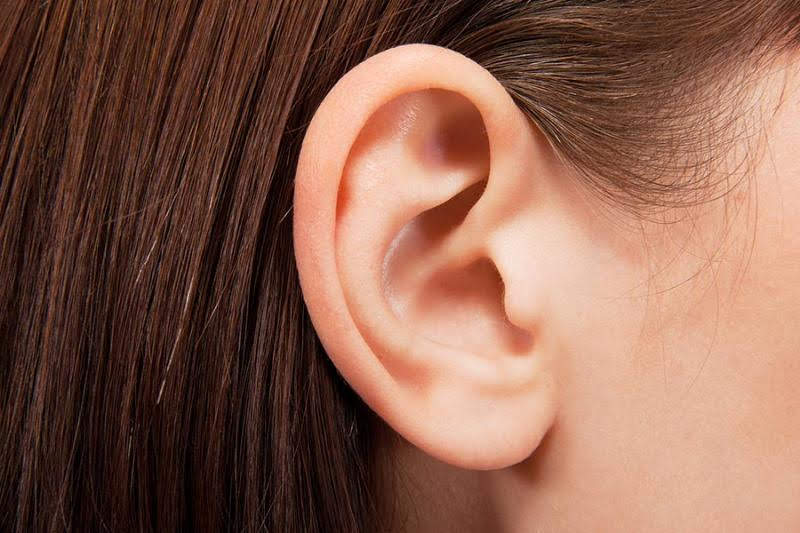Hearing loss is one of the most common medical conditions, affecting nearly 50 million Americans. It can be difficult to follow conversations, hear important sounds, and even enjoy simple pleasures like birds singing. However, hearing loss doesn’t always occur on its own. For many people, it can be caused by or lead to more serious health conditions.
Whether physical or mental, comorbidities of hearing loss can be serious or potentially life-threatening.
As such, if you believe you may have hearing loss, it is important to consult a hearing care professional to evaluate the extent of your loss and advise you on any potential comorbidities you may have. Either way, you should be aware of the associated medical conditions that can lead to hearing loss, occur at the same time, or result from it.

Health conditions that cause hearing loss
There are several conditions that can lead to hearing loss, either directly or because of the medications used to treat them. These can include:Traumatic brain injury: Head trauma resulting from a car accident or fall can lead to hearing loss in several ways. For one, the trauma could damage the tiny bones in the middle ear or the cochlea itself, impairing hearing directly. Alternately, a traumatic brain injury can lead to hearing loss by affecting how sound is processed by the brain.
Meniere’s disease: Meniere’s disease is a condition that currently has no known cause, but is believed to involve excess fluid in the inner ear. Symptoms include episodes of vertigo, ringing in the ear, or tinnitus, and hearing loss. Though it often affects only one ear, over time it may spread to both.
Diseases treated with ototoxic medications: Whether prescribed or over-the-counter, some drugs used to treat certain medical conditions are ototoxic, having a harmful effect on your hearing. These include chemotherapy and other drugs for cancer treatment, antibiotics like gentamicin, streptomycin, and neomycin, and non-steroidal anti-inflammatory drugs.
Ailments that occur alongside hearing loss
Rather than causing hearing loss, some medical conditions occur at the same time, or have hearing loss as one of their symptoms.Diabetes: Diabetes is one of the most common comorbidities of hearing loss, with patients twice as likely to have diminished hearing compared to those without diabetes. The effects of high blood sugar levels can damage the blood vessels and nerves of the inner ear, diminishing your ability to hear.
Cardiovascular disease: Damage to the sensitive blood vessels of the inner ear is also a symptom of cardiovascular disease and other circulatory conditions. Poor blood flow to the auditory system due to plaque buildup in the blood vessels can lead to hearing loss, which is often the first sign of heart disease.
Thyroid disease: Illnesses affecting the thyroid, such as Pendred syndrome, Grave’s disease, and Hashimoto’s disease, have all been linked to hearing loss. While the connection is still being researched, thyroid disease is known to affect several bodily processes, including heart rate, energy level, and hearing.
Conditions that result from hearing loss
Rather than being a direct cause of hearing loss, some medical conditions occur because of hearing loss—often due to lack of treatment.Cognitive decline and dementia: Difficulty hearing can lead to mental health conditions like dementia and other types of cognitive decline. Straining to hear conversations and other sounds can overwhelm the brain and lead to diminished cognitive ability. Hearing loss can also make you feel embarrassed to be around others, and the resulting social isolation can exacerbate dementia.
Depression: Hearing loss can lead to depression in several ways. For one, just like with dementia, not being able to hear others can make it difficult to be around people and cause you to withdraw from social situations. It can also damage relationships with those close to you. Constantly asking your family and friends to repeat themselves or having the TV too loud can lead to frustration. Also, the very fact that you can’t hear the sounds you used to can be stressful and saddening. If hearing loss remains untreated, these feelings could worsen and lead to depression.
Healthy hearing, healthy living
The impact of hearing loss on your health goes beyond just your ears, affecting your physical and mental wellbeing. Given the connection between hearing loss and many other illnesses, the benefits of improved hearing to your overall health are clear. Since hearing loss is so closely tied to other issues, it is important to consult with your hearing care professional and primary care physician if you’re having hearing difficulties and find out if any of the above comorbidities are also present. By taking care of your hearing health, you can help keep the rest of your body healthier as well.
If you like what you see, share it so others can benefit
Posted by Lisa

Lisa Klop Au.D
Dr. Lisa Klop is an Educational Specialist for Sivantos, Inc. She is responsible for training customers and sales staff on the company’s current technology and products. She conducts training sessions in customers’ offices, remotely, via webinars, and at regional and national events. Areas of particular expertise include hearing assistive technology and the fitting of kids and teens. Prior to joining Sivantos (then Siemens Hearing Instruments) in 2012, she operated a private dispensing practice for 6 years. Other clinical experience includes hospital, ENT and non-profit clinics. Lisa obtained her doctorate degree in Audiology from Central Michigan University in 2005.
Looking For the Latest Hearing Aids or A Hearing Test?
Arrange a consultation with a trusted Independent hearing healthcare professional in your area



